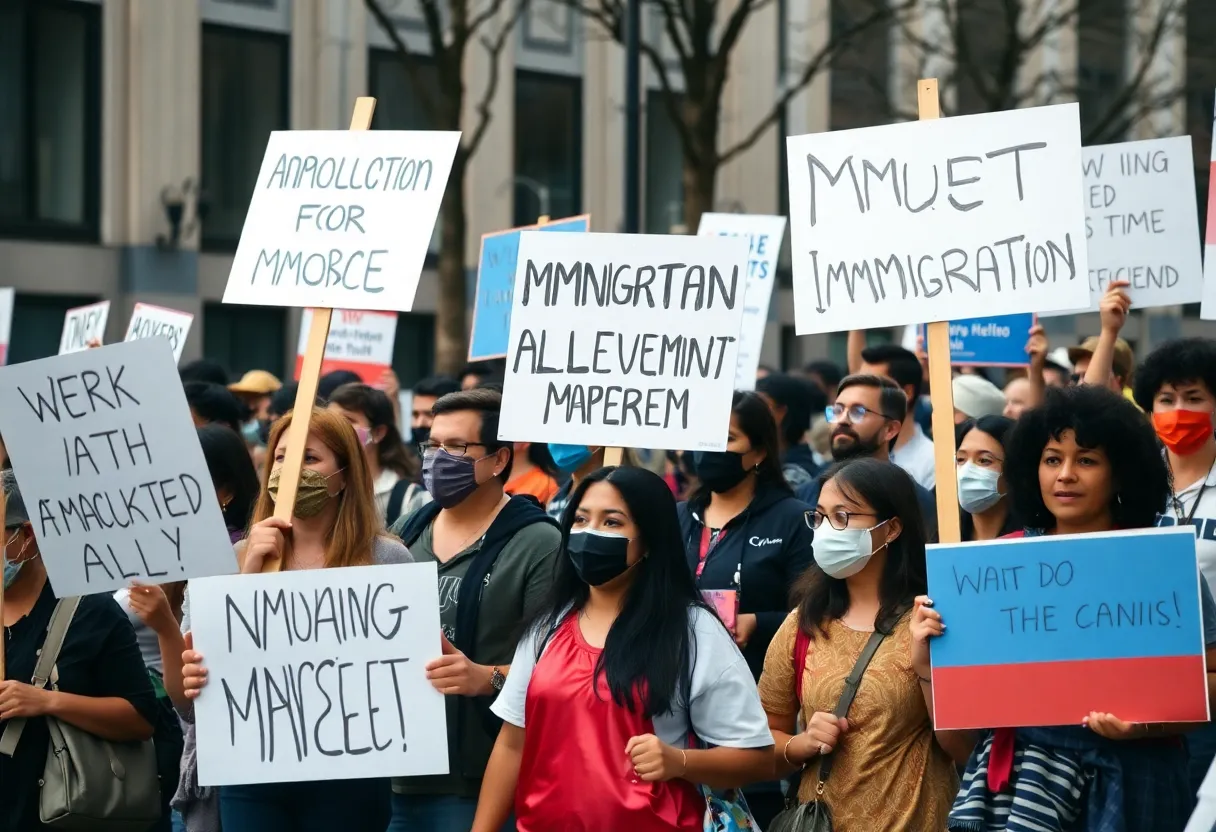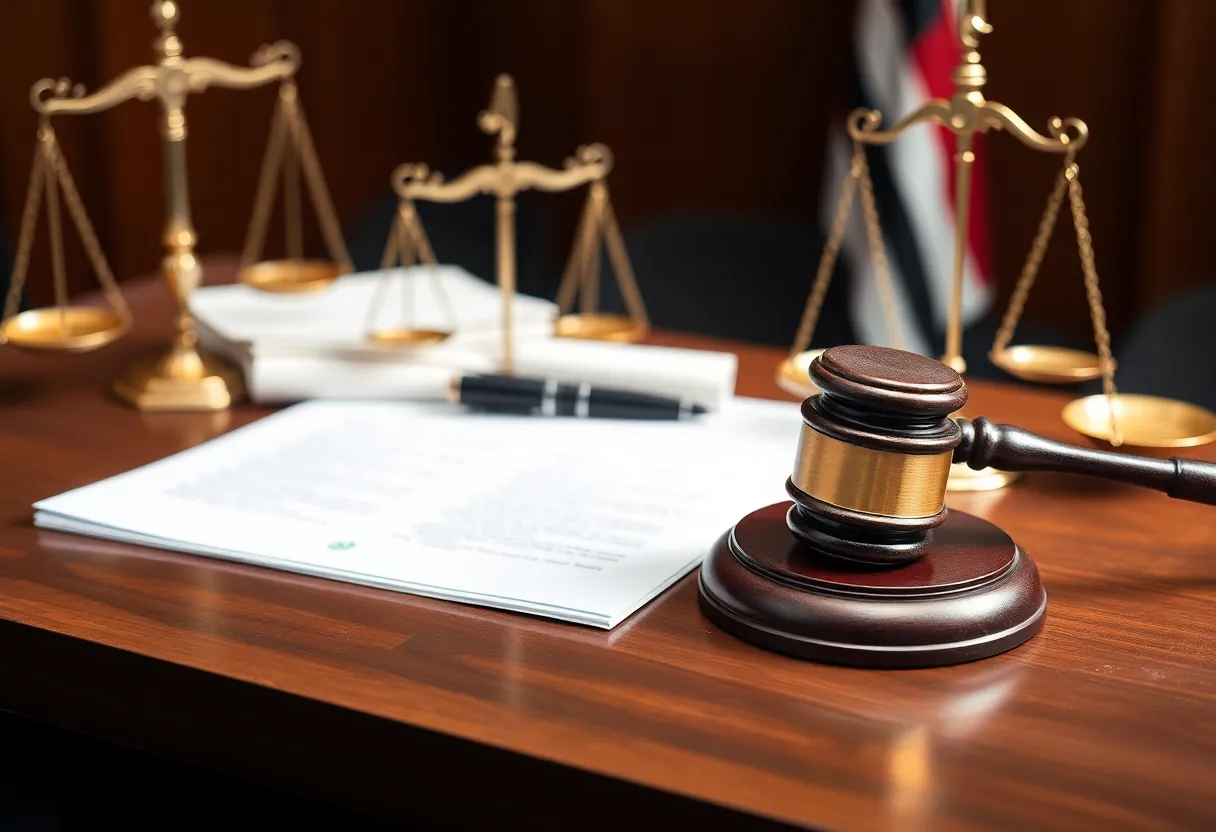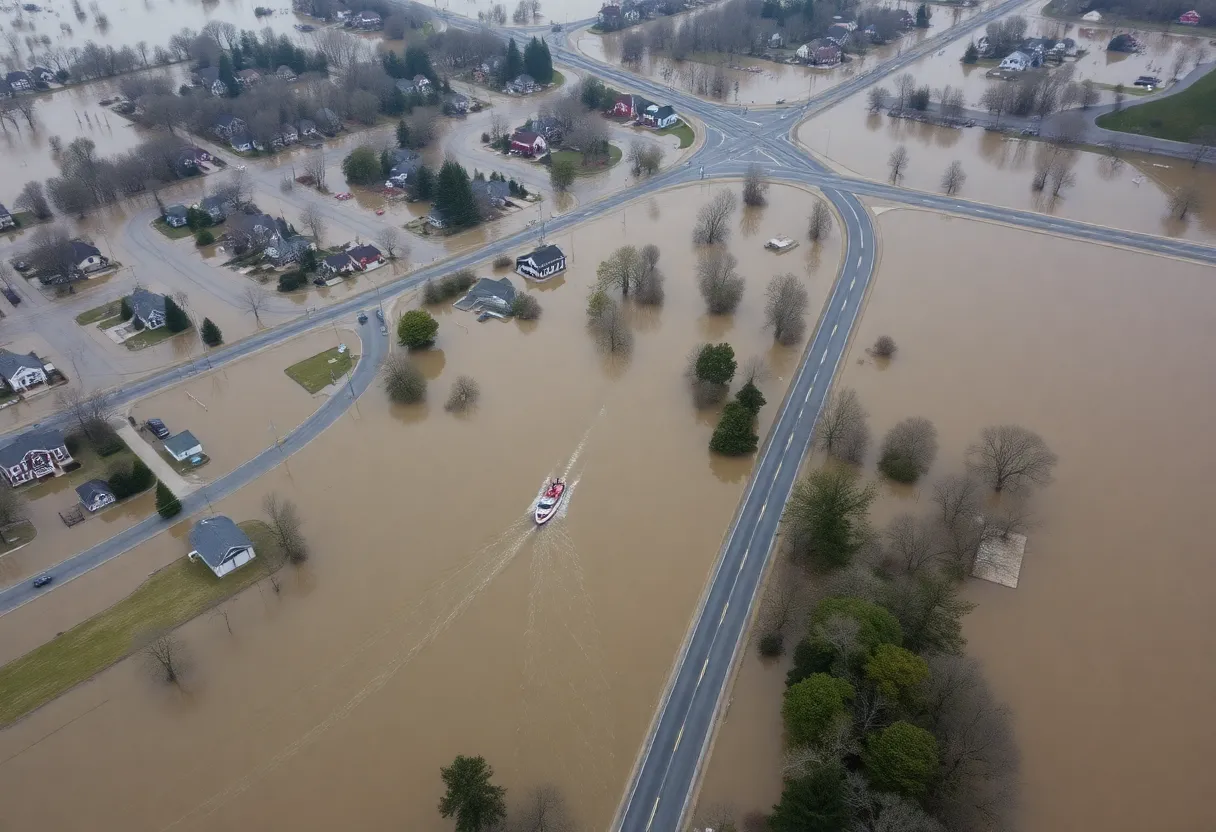News Summary
President Trump has signed the Laken Riley Act, mandating the federal deportation of undocumented migrants charged with certain crimes. This law, aiming to address ‘migrant crime,’ has ignited debate surrounding its implications on racial profiling and community safety. Advocates argue it may lead to inhumane conditions for detainees, as Guantanamo Bay is set to detain thousands of ‘criminal illegal aliens.’ This legislation signifies a monumental shift in immigration policy and a focus on criminal matters involving undocumented migrants.
New Law Sparks Controversy in the Community
In a significant development, President Donald Trump has just signed the Laken Riley Act into law, with the aim of addressing the complex issues surrounding undocumented migrants in the United States. This decision, made in the heart of Washington, has stirred a whirlwind of reactions across the country, especially among those who are passionate about immigration rights and community safety.
What Does the New Law Entail?
The Laken Riley Act mandates the federal deportation of undocumented migrants who are either charged or convicted of certain crimes, which include offenses like shoplifting, theft, and even more severe charges such as assaulting a police officer or causing injury or death to others. This change signifies a hefty shift in the government’s approach to immigration, particularly in criminal matters.
Focus on Community Crime
According to the administration, this law is an effort to eradicate what they term as “migrant crime” from communities across the United States. Local and state police in places like Kentucky are now required to enforce this federal regulation, raising concerns about how this will be implemented in practice. Immigration Attorney Heather Hadi has stressed the potential risks of this law, fearing it may lead to racial profiling and wrongly associating all migrants with criminal behavior.
The Story Behind the Act
The act is named in memory of Laken Riley, a nursing student who was tragically murdered. The suspect, Jose Antonio Ibarra, was a Venezuelan national living in the U.S. illegally and had prior legal issues before committing this grave crime. During the signing ceremony, Laken’s parents were present, underscoring the emotional weight of the legislation.
Detaining at Guantanamo Bay
As part of the implementation of this new law, President Trump has announced that Guantanamo Bay, a facility often associated with terrorism suspects, will be used to detain as many as 30,000 “criminal illegal aliens”. This decision has raised eyebrows, as the facility is known for its strict conditions. The announcement signifies a tougher stance on immigration enforcement and adds a daunting layer to the conversation around migrant detention.
Legal Implications
With the law stating that federal authorities must detain any immigrant arrested or charged with specified crimes—without even needing an official charge—the legal landscape may become contentious. State attorneys general are preparing to take action, potentially leading to lawsuits over immigration enforcement practices. This aspect could drive a wedge between federal and state authorities on how they handle cases involving undocumented migrants.
Criticism and Support
While supporters of the act believe it’s a necessary step to protect communities from crime, detractors are concerned it could fuel an environment rife with racial profiling and wrongful detentions. Groups advocating for migrant rights have voiced their outrage, arguing that the law will lead to inhumane conditions for detainees and create a cycle of abuse. Advocates have suggested using video recording as a means of protection for migrants faced with the potential for mistreatment.
A Zoomed-In Focus on Immigration
The swift passage of the Laken Riley Act shortly after Trump’s inauguration highlights a clear focus on immigration reform as a key agenda item. The administration is gearing up to fully prepare Guantanamo Bay for this new function, reflecting how seriously they take the issue of immigration and crime. Trump has emphasized that the facility represents a “tough place to get out of,” hinting at stringent detention policies aimed at maintaining order.
Looking Ahead
The implications of the Laken Riley Act will undoubtedly reverberate through communities and immigration discussions for months, if not years, to come. With its multi-faceted impacts on law enforcement, civil rights, and public safety, it marks a pivotal moment in the ongoing debate around immigration in America.
Deeper Dive: News & Info About This Topic
HERE Resources
Tennessee Passes Universal School Voucher Bill
Tragic Incident in Morehead: Kentucky State Police Involved in Fatal Shooting
Lexington Man Sentenced to 40 Years for Drug Trafficking
Oklahoma Education Board Approves Enrollment Proposal
Border Patrol Agent Tragically Killed in Shootout
Florida Governor DeSantis Faces Legislative Rejection
Lexington’s First Homicide of 2025: Suspect Named
Trump Bolsters Military Presence at U.S.-Mexico Border
Community Comes Together in Lexington Amid Immigration Concerns
Trump Administration Plans Major Military Deployment to Border
Additional Resources
- WKYT: Lexington Attorney Discusses Laken Riley Act
- Google Search: Laken Riley Act
- Index Journal: Trump Says US Will Detain Migrants in Guantanamo
- Wikipedia: Guantanamo Bay
- Kentucky.com: Local Crime News
- Google Scholar: Immigration Law
- Index Journal: Trump on Sending Criminal Migrants to Guantanamo
- Encyclopedia Britannica: Immigration
- Kentucky Lantern: Anti-Immigrant Politics in Kentucky
- Google News: Laken Riley Act







